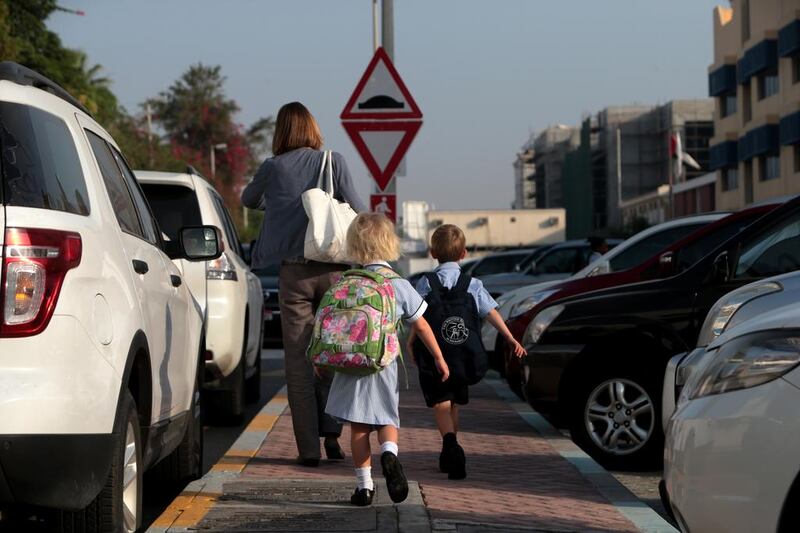Last week, a small child in Abu Dhabi died tragically when left in a school bus. In due course, a court will determine where responsibility lies, while the school’s administration must now rebuild its relationships with parents and children. I do not envy them this task.
The broader issue of how schools interact with the parents of their students, not only in terms of the teaching, the safety of the children and the size of the annual fees, but also over a wide range of other issues, is one that perhaps requires greater attention. There is no UAE legislation, as far as I am aware, to allow for the creation of parent-teacher associations or to institutionalise a process of consultation that will permit parents to contribute effectively to the running of the schools to whose care they have entrusted their children, often at considerable expense.
I am aware, from past experience, of one well-known private school in the capital that has, or had, a policy of doing everything possible to dissuade parents from making any contribution at all, apart from the fees. Meetings with teachers were frowned upon and the school principal made no effort at all to encourage parents to express their views.
My current experience, with another school, is markedly different. Over the last week, other parents and I have twice had the opportunity of engaging with the school. One was a “Principal’s Drop-In”, which generally takes place every few weeks, at which parents are invited to raise topics of concern. These included traffic congestion at the beginning and end of the school day, the user-friendliness (or otherwise) of the school’s website and issues relating to homework and supervision during swimming lessons.
The second meeting, attended by the principal and assistant principal, brought together parents, mainly mothers, to discuss activities that could be of benefit to the school as a whole. These included an end-of-year party, preliminary planning for an international day early next year to celebrate the wide variety of nationalities and cultures represented in the student body, and other voluntary activities. Among these are a number of simple fund-raising schemes, such as a “crazy hair day”, when students are invited to come with, well … crazy hair styles on payment of a modest sum. The amount collected is then either donated to a charity or used to purchase pieces of equipment or other items that aren’t funded by the school’s operational budget but will enhance the experience of the children in and out of class.
Membership of this group of “Friends” of the school is open to any parent who wishes to take part, while the school’s leadership offers support, ideas and facilities.
To supplement the “Principal’s Drop-In” and the “Friends”, for each class there is a class representative (a parent) who acts as a point of contact and channel of communication between parents and the administration, passing on messages, suggestions and, where necessary, complaints in both directions.
It’s all pretty simple stuff. There are no formal structures and no complex competition over authority. Instead, both sides – if it’s appropriate to view a school’s staff and parents as being on different sides – can communicate and work together in pursuit of the shared goal of doing what’s best for the children. Any parent able to pass by the school at drop-off or pick-up time is not only permitted to talk to their child’s teacher but is actually encouraged to do so.
Over the years, I’ve seen the benefit of such an approach in terms of staff and parents working together. Issues that might be overlooked get addressed properly, while it can only be of long-term benefit for the children if they know that there are no barriers between home and school when it comes to discussing the occasional problems that, inevitably, crop up.
Most schools do – or should – welcome greater interaction with the parents of their children.
The topics discussed should go far beyond the safety of school buses, of huge importance though that is, and include the whole range of the education being provided. With the new academic year now well under way, perhaps that greater interaction is something that all of our educational institutions should adopt as a target for the year ahead.
Peter Hellyer is a consultant specialising in the UAE’s history and culture





